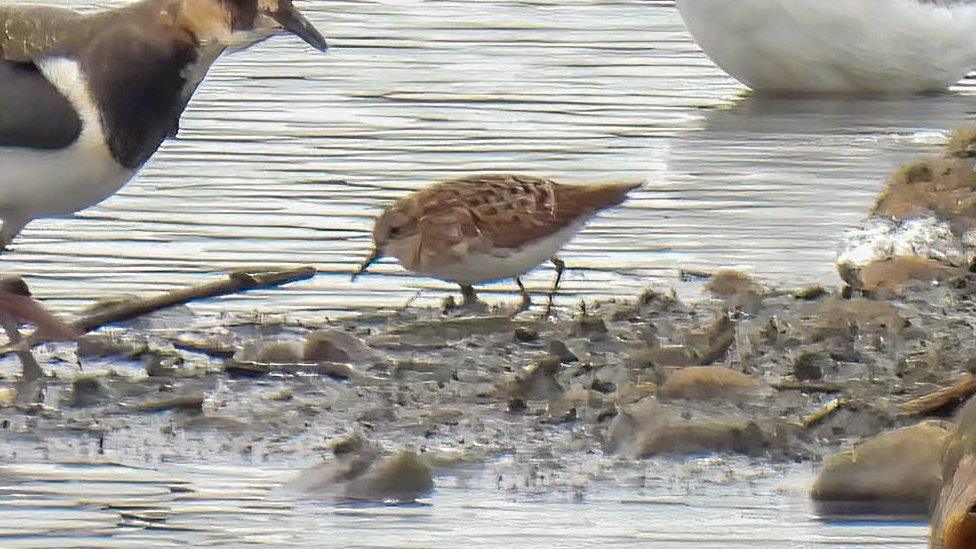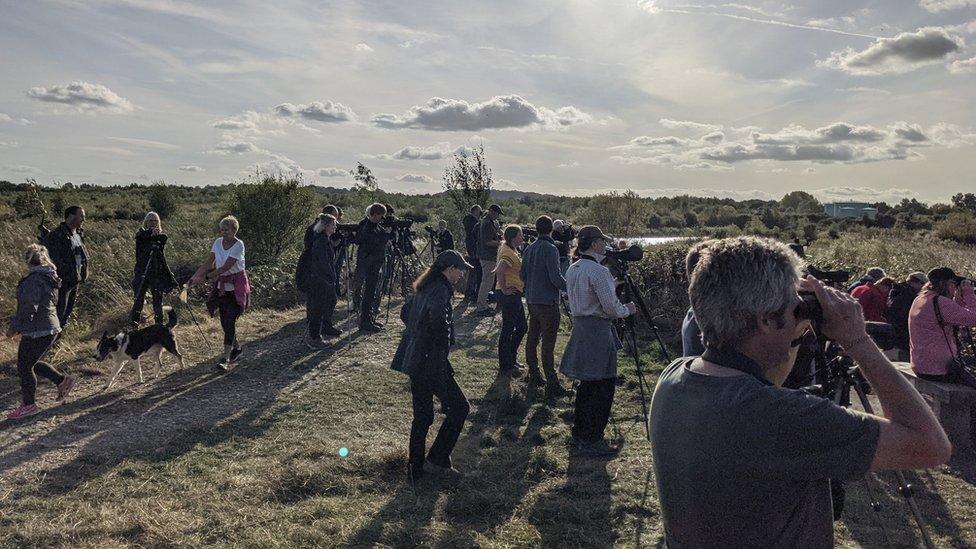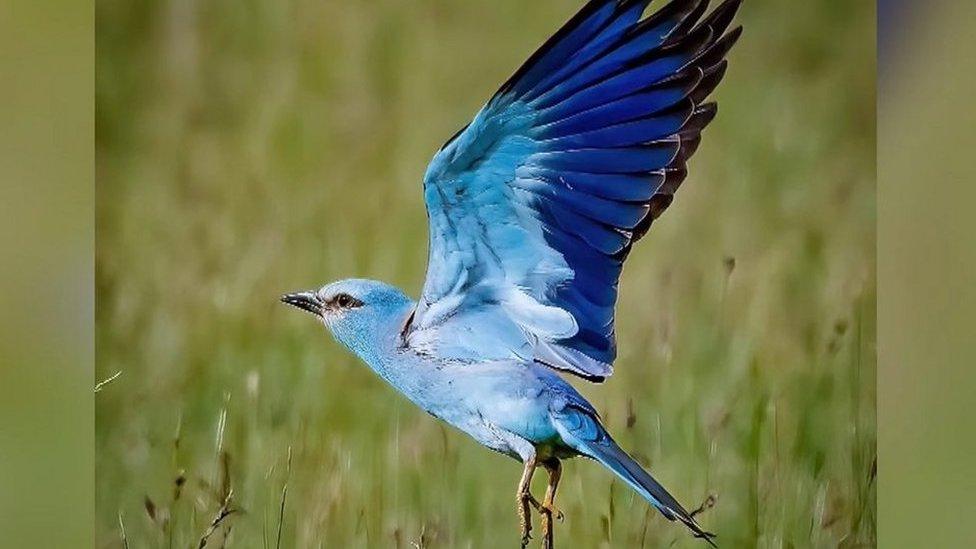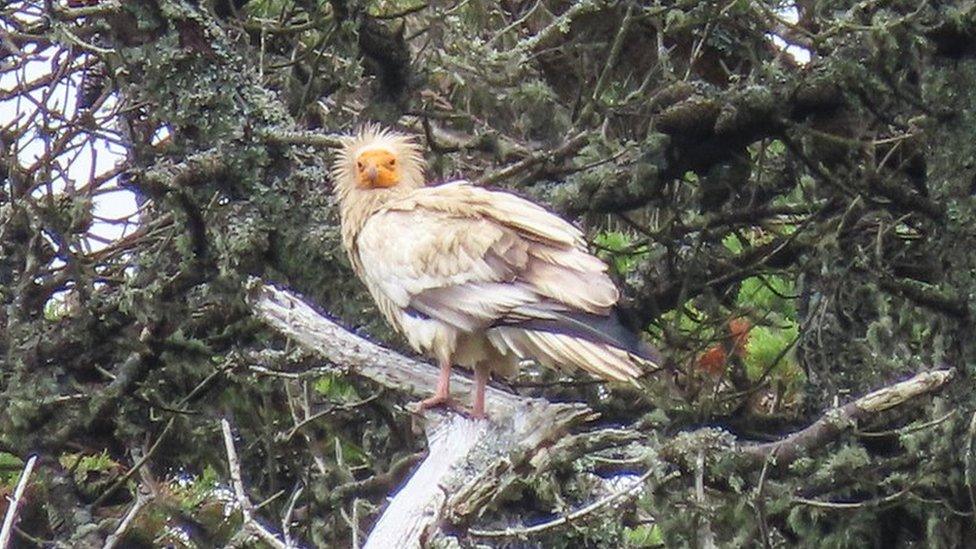Long-toed stint: Twitchers flock to Leeds for rare bird sighting
- Published

The small bird was spotted and identified by a local bird watching group
A rare bird usually found across northern Asia has been spotted in Yorkshire for what is thought to be the first time.
The long-toed stint has been drawing crowds since Friday after being spotted at St Aidans Nature Reserve in Leeds.
Usually breeding in Siberia and migrating towards southern Asia and Australia, it has only been observed anywhere in the UK a handful of times.
Photographer Dave Ward said seeing the bird so close to home was "amazing".
The small wader was identified by a local bird watching group last week on a lake at the reserve.
Since then, hundreds of people have headed for the site to try to catch a glimpse.
Mr Ward said hearing a long-toed stint was so close to Leeds, he had to go and see if he could spot it, especially as he believed it was Yorkshire's first sighting of the bird.
"On seeing it, the hairs were rising on the back of my neck and my first thought was, 'blimey, that's small'," he said.

Crowds from across Europe are said to have flocked to the nature reserve in Leeds
Mr Ward said it was hard to believe the rare visitor had found its way to Leeds, so many miles away from its normal habitat.
"It really is a rare experience for us birders and the look of pleasure on our faces and the joy with which we talked about it makes it an experience I'm sure we'll never forget."
Lauren Ballinger, who was also at St Aidans to see the long-toed stint, said the bird spent time "island-hopping", followed at a distance by a mob of cameras.
"A guy told me there were people there from all over Europe. I did catch a glimpse of it. It was tiny," she said.
Mr Ward said he enjoyed seeing the small visitor so much that he went back for another visit and planned to go again if it was still there.
"I hope it enjoys its time at Swillington and eventually finds its way back home," he added.

Follow BBC Yorkshire on Facebook, external, Twitter, external and Instagram, external. Send your story ideas to yorkslincs.news@bbc.co.uk, external.
Related topics
- Published29 June 2021

- Published15 June 2021
